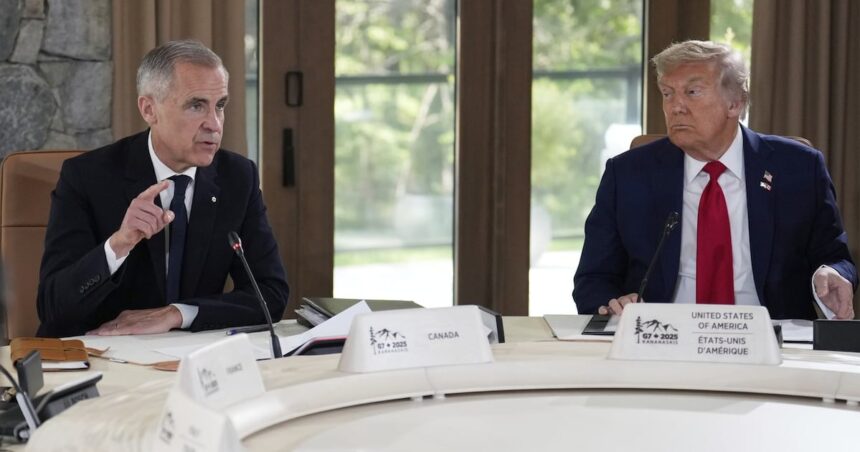The pristine backdrop of the Canadian Rockies sets the stage for what promises to be a pivotal day of diplomacy as Prime Minister Mark Carney welcomes world leaders to the second day of the G7 Summit in Alberta. Today’s agenda features high-stakes bilateral meetings with India’s Prime Minister Narendra Modi and Ukrainian President Volodymyr Zelenskyy, signaling Canada’s renewed commitment to strengthening international alliances during times of global upheaval.
“Today’s discussions will focus on pressing geopolitical challenges that require unified responses from the world’s leading democracies,” a senior Canadian official said on condition of anonymity. “The Prime Minister views these meetings as critical to advancing Canada’s strategic interests while addressing shared global concerns.”
The meeting with Modi marks a significant diplomatic effort to repair Canada-India relations, which deteriorated sharply last fall following allegations of Indian government involvement in the assassination of Sikh leader Hardeep Singh Nijjar on Canadian soil. While both leaders have maintained a professional working relationship at international forums, today’s bilateral meeting represents the first substantial engagement since the diplomatic rift emerged.
According to sources familiar with the preparations, trade discussions will feature prominently, with particular focus on critical minerals and energy cooperation. Canada’s Business sector has been eager to expand market access to India’s rapidly growing economy, especially as global supply chains continue to realign.
The summit’s second day will also see Carney hold talks with President Zelenskyy, who arrived late yesterday to the Alberta venue. This meeting occurs against the backdrop of Ukraine’s continued defensive struggle against Russian aggression, now entering its third year.
“Ukraine requires sustained international support, and Canada remains committed to standing with the Ukrainian people,” Carney told reporters yesterday. The Canadian government recently announced an additional $500 million aid package for Ukraine, emphasizing its unwavering support despite changing political landscapes in other allied nations.
Beyond these high-profile bilateral meetings, G7 leaders are expected to address Indo-Pacific security concerns, particularly China’s growing regional influence. Japanese Prime Minister Fumio Kishida has reportedly prepared a detailed briefing on maritime security challenges in the South China Sea, seeking collective G7 action to counter what Tokyo describes as “increasingly assertive behavior” in the region.
European participants, including French President Emmanuel Macron and German Chancellor Olaf Scholz, are pushing for unified messaging on democratic resilience and the protection of electoral processes from foreign interference—issues with particular relevance as several G7 nations face elections in the coming year.
The Alberta summit represents Carney’s first major international diplomatic event since becoming Prime Minister, with analysts closely watching his performance on the world stage. His background as former Bank of Canada and Bank of England governor has raised expectations for strong leadership on economic policy discussions scheduled for tomorrow.
Local protestors have gathered near the secure perimeter, primarily focusing on climate policy and indigenous rights issues. Security remains tight throughout the venue, with RCMP overseeing what officials describe as “the most comprehensive security operation for a Canadian diplomatic event in recent memory.”
As world leaders navigate these complex discussions today, a fundamental question emerges: Can the G7, representing less than 10% of the world’s population but over 40% of its economic output, still effectively shape global governance in an increasingly multipolar world?










